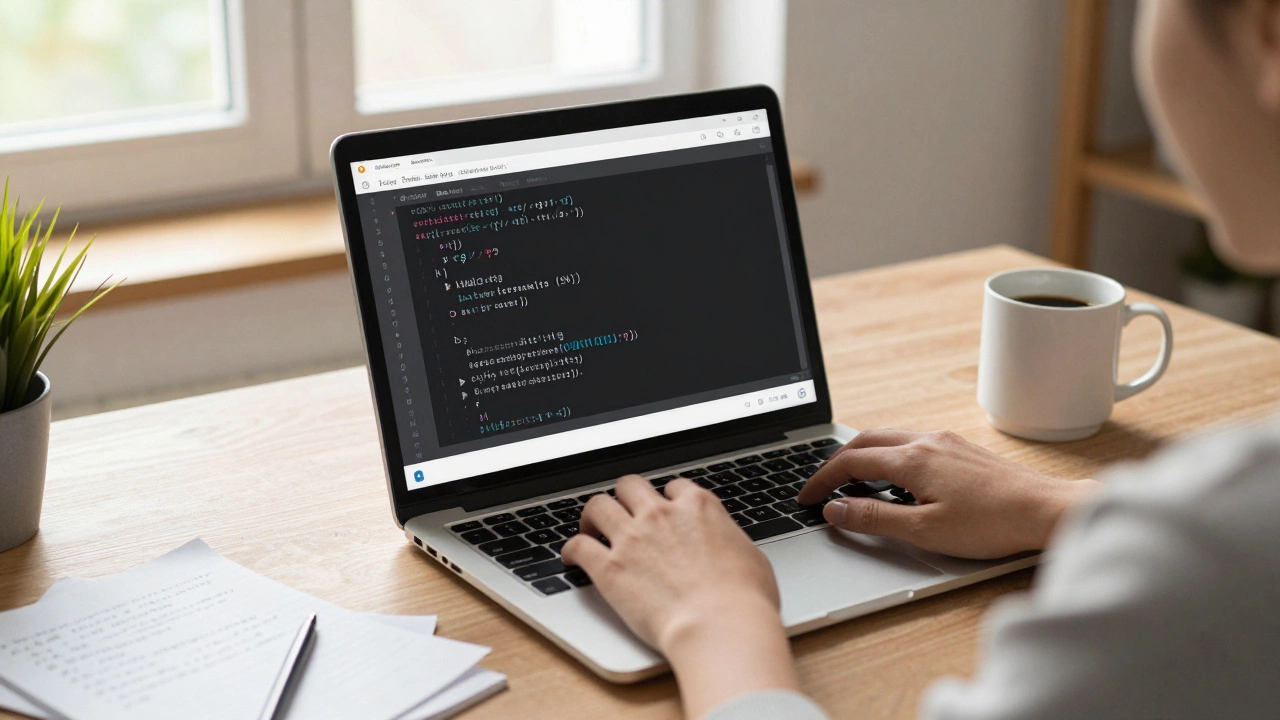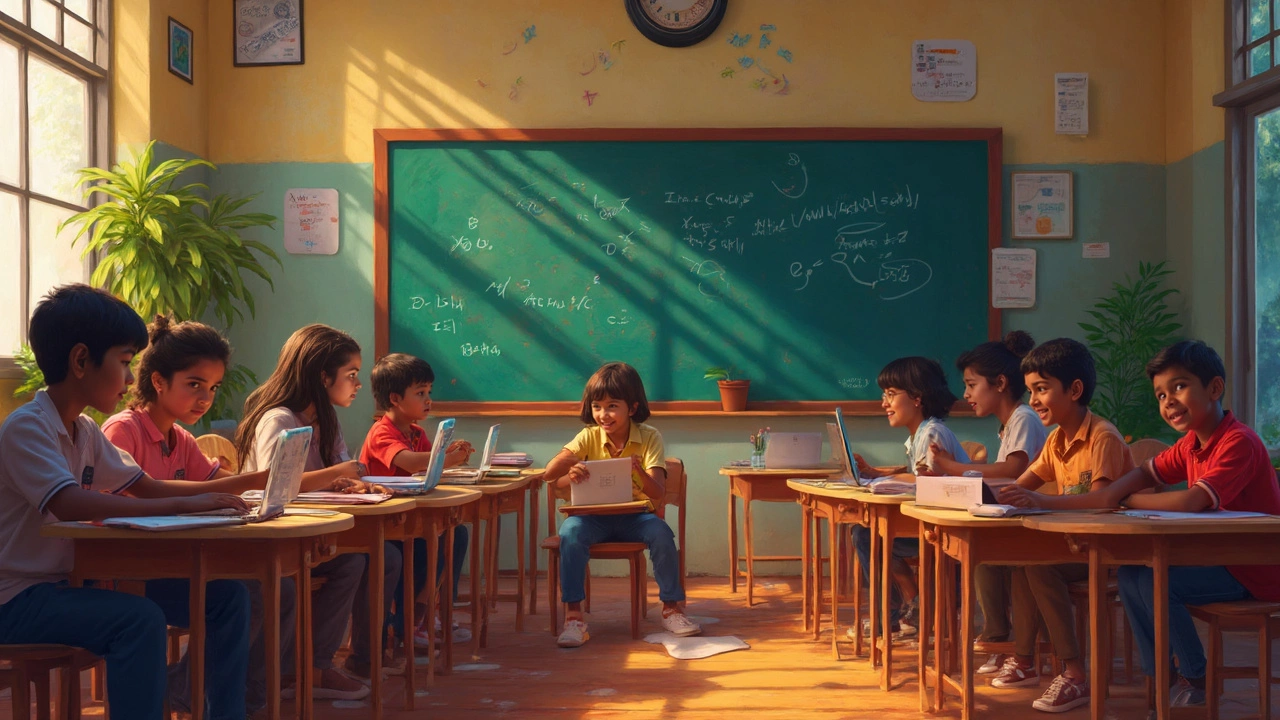Learn to Code: A Practical Guide to Getting Started
Want to join the world of programming but don’t know where to begin? You’re not alone. Millions start with zero experience, and most of them end up building apps, landing tech jobs, or even creating side‑hustles. The trick is to pick a clear path, use free tools, and practice every day.
Pick a language and stick with it
Don’t chase every new language that pops up. Choose one that matches your goal. If you want to build websites, HTML, CSS, and JavaScript are the basics. For data work or automation, Python is the go‑to. Mobile apps? Start with Kotlin for Android or Swift for iOS. Pick one, follow a beginner tutorial, and finish a small project before moving on.
Free resources that actually work
There are dozens of sites that promise “learn to code fast.” The ones that consistently help learners are:
- freeCodeCamp – interactive lessons, real‑world projects, and a community forum.
- Codecademy – bite‑size exercises that keep you moving forward.
- SoloLearn – mobile‑first practice, great for learning on the go.
- YouTube channels like “Programming with Mosh” or “Traversy Media” – short videos that explain concepts in plain English.
Pick two of these, set aside 30 minutes a day, and you’ll see steady progress.
Practice is the only shortcut. Write code every day, even if it’s just a “Hello World” tweak. Use sites like LeetCode or HackerRank for short challenges once you’re comfortable with the basics. The more you type, the faster your brain builds the patterns that turn problems into solutions.
Don’t forget to document what you learn. A simple Google Doc or a personal blog helps you recall concepts and shows future employers that you can explain technical ideas clearly.
When you finish a small project—say a personal portfolio or a to‑do list app—share it on GitHub. Recruiters often check GitHub profiles before an interview, and a live demo tells a story far better than a resume line.
Turning code into a career
Most entry‑level coding jobs look for two things: a solid foundation in one language and a portfolio of real projects. After you have a few repos, start applying for junior developer roles, internships, or freelance gigs on platforms like Upwork.
Salary expectations vary by city and skill set, but data from the post “Do Coders Make a Lot of Money?” shows that even fresh graduates in India can earn between ₹4 lakhs and ₹8 lakhs per year, while experienced developers often cross the ₹15 lakhs mark. Those numbers keep rising as demand for software talent grows.
Keep learning on the job. New frameworks appear all the time, and a habit of weekly “learning sprints” will keep you relevant. Pair programming, code reviews, and open‑source contributions are low‑cost ways to level up.
Bottom line: learning to code isn’t a magic button. It takes consistent effort, the right resources, and a willingness to build and share real projects. Follow the steps above, stay curious, and you’ll turn curiosity into a marketable skill.
Jan
23

- by Dhruv Ainsley
- 0 Comments
Can I learn to code if I'm bad at math?
You don't need to be good at math to learn to code. Real coding is about logic, not equations. Learn how beginners with no math background are building websites, apps, and tools today.
Jun
4

- by Dhruv Ainsley
- 0 Comments
Coding or Math: Which Is Harder and Why?
Wondering whether coding or math is more difficult? This article takes a close look at the skills each one demands, how they can overlap, and where the real roadblocks lie. You’ll find out why some people breeze through coding while math makes their head spin, and vice versa. With real-world tips for students, you'll get clarity on what makes each challenging—and how to get better at both. By the end, you’ll know what to expect and how to tackle either subject with confidence.
Mar
31

- by Dhruv Ainsley
- 0 Comments
How Much Does a Coding Class Really Cost?
Thinking about taking a coding class but not sure about the cost? There’s a wide range of options, depending on what you're looking for. Whether it's free online tutorials or pricier immersive bootcamps, this guide will help you understand the full spectrum of costs involved. Discover what you can expect to pay and where to find budget-friendly options.
Jan
17

- by Dhruv Ainsley
- 0 Comments
Choosing Your First Programming Language to Learn in 2025
In 2025, choosing the right programming language to start with is crucial for anyone interested in diving into the world of coding. This article guides beginners through understanding the purpose of different popular languages, offers tips on aligning language selection with career goals, and emphasizes the importance of practice and community support. It also explores how technological advances can influence learning preferences and language trends. Dive in to make an informed decision for your coding journey.
Nov
22

- by Dhruv Ainsley
- 0 Comments
How Quickly Can You Master Coding Skills?
Learning to code can be swift and efficient if approached with the right strategies and mindset. The pace at which one can acquire coding skills depends on numerous factors including dedication, resources, and previous experience. With modern tools and resources, anyone can embark on an exciting journey towards becoming proficient in coding. This article explores various tips and the typical timeline to guide beginners on their path to coding mastery.